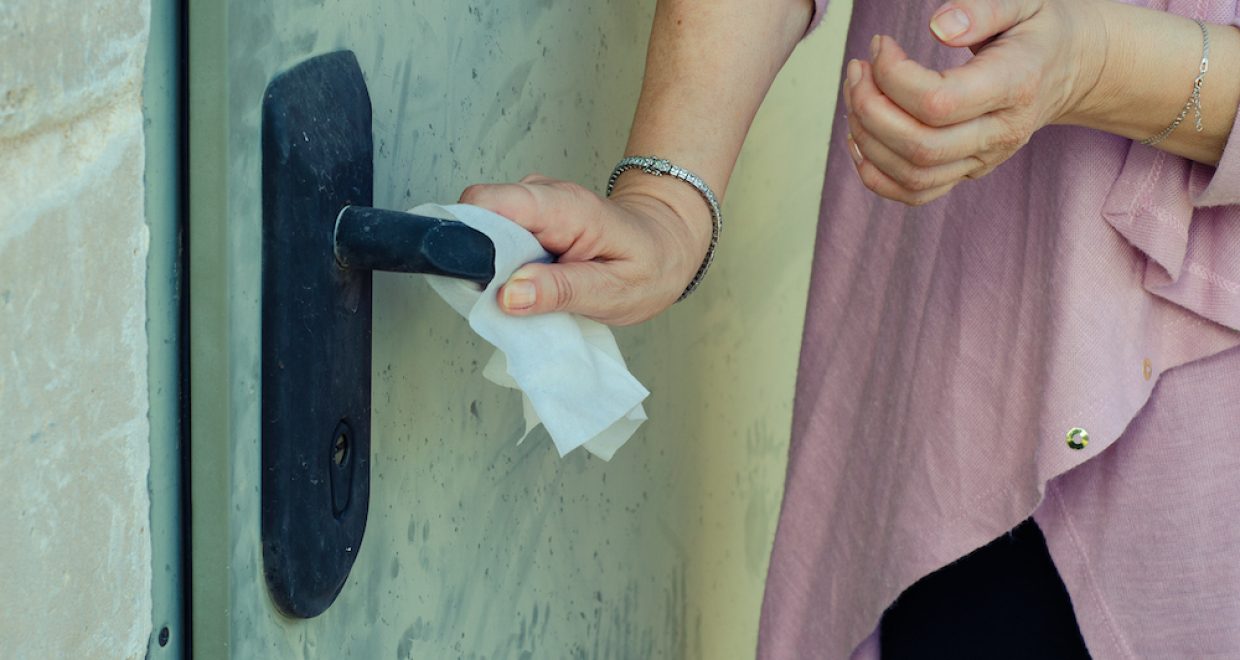OCD and COVID-19: A New Frontier
The July British Association for Behavioural and Cognitive Psychotherapies (BABCP) Article of the Month is from the Cognitive Behaviour Therapist (tCBT) and is entitled “OCD and COVID-19: a new frontier” by Amita Jassi, Khodayar Shahriyarmolki, Tracey Taylor, Lauren Peile, Fiona Challacombe, Bruce Clark and David Veale
This article came to life on the back of discussions within the National Highly Specialised Services for severe OCD/BDD teams at the start of the pandemic. What started off as a general checking in with each other quickly moved into how we were managing clinically and what kind of observations we were making as we all adapted to new ways of working. It became a reflection on the effects of the global pandemic on the way we were delivering therapy, predictions about likely problems COVID 19 might present to both those with OCD, and to us as specialist OCD therapists delivering therapy and attempts to problem solve around these.
Four months on, and what are the initial observations….
The most stand out point to me is the extraordinary flexibility our patients have shown in adapting to virtual delivery of therapy, and the success it has been. Most people are choosing it, and finding it helpful. It seems to have good face validity, very few people have opted out in favour of waiting for face-to-face therapy. Many say that if we do go back to face-to-face they would prefer to continue virtual therapy. It is clearly much more accessible and convenient and DNA rates / late attendance have plummeted.
This historic time will I’m sure in the future be fully researched, but currently the majority of the people we are treating are doing well, despite lockdown and the many uncertainties in their lives. Our initial thoughts that our current models can help people account for and understand COVID as ‘just more content’ for their OCD to feed on seem to be borne out, at least with the cohorts we are currently seeing.
It would be interesting in the future perhaps to look at who didn’t do so well. There have been several people who started virtually, who managed the engagement, formulating, goal-setting stages well, but struggled with the more active stages of therapy and asked to put therapy on hold until they could be seen face to face. It would be interesting to look at their characteristics, and those of the group who have opted out, and to compare their outcomes. It will also be interesting to compare and contrast pre COVID OCD diagnosis OCD versus post, and to study the incidence of OCD diagnosis post COVID, and whether there are any spikes.
This has been such an interesting and historic time to be working with OCD, and I am sure will change the ways we deliver therapy in a very positive way.
From the Editor-in-Chief of tCBT: Why I chose this article.
The COVID-19 pandemic has affected a lot of people’s mental health but in the last few months one of the common themes of supervision and case discussion within my own service (and reflected on social media) has been around the impact of this new and uncertain world on people with OCD or new cases of OCD with COVID-19 as one of the themes. Many colleagues have asked me about useful papers to read and to date this is by far the most helpful one I have found. It provides clear clinical guidance on OCD presentations and also how CBT therapists can appropriately adapt behavioural experiments to this new context.
Sign up for online content alerts and follow us on Twitter @TheCBTJournal. Read the Instructions for Contributors and submit your paper today. The CBT is published on behalf of the BABCP.






